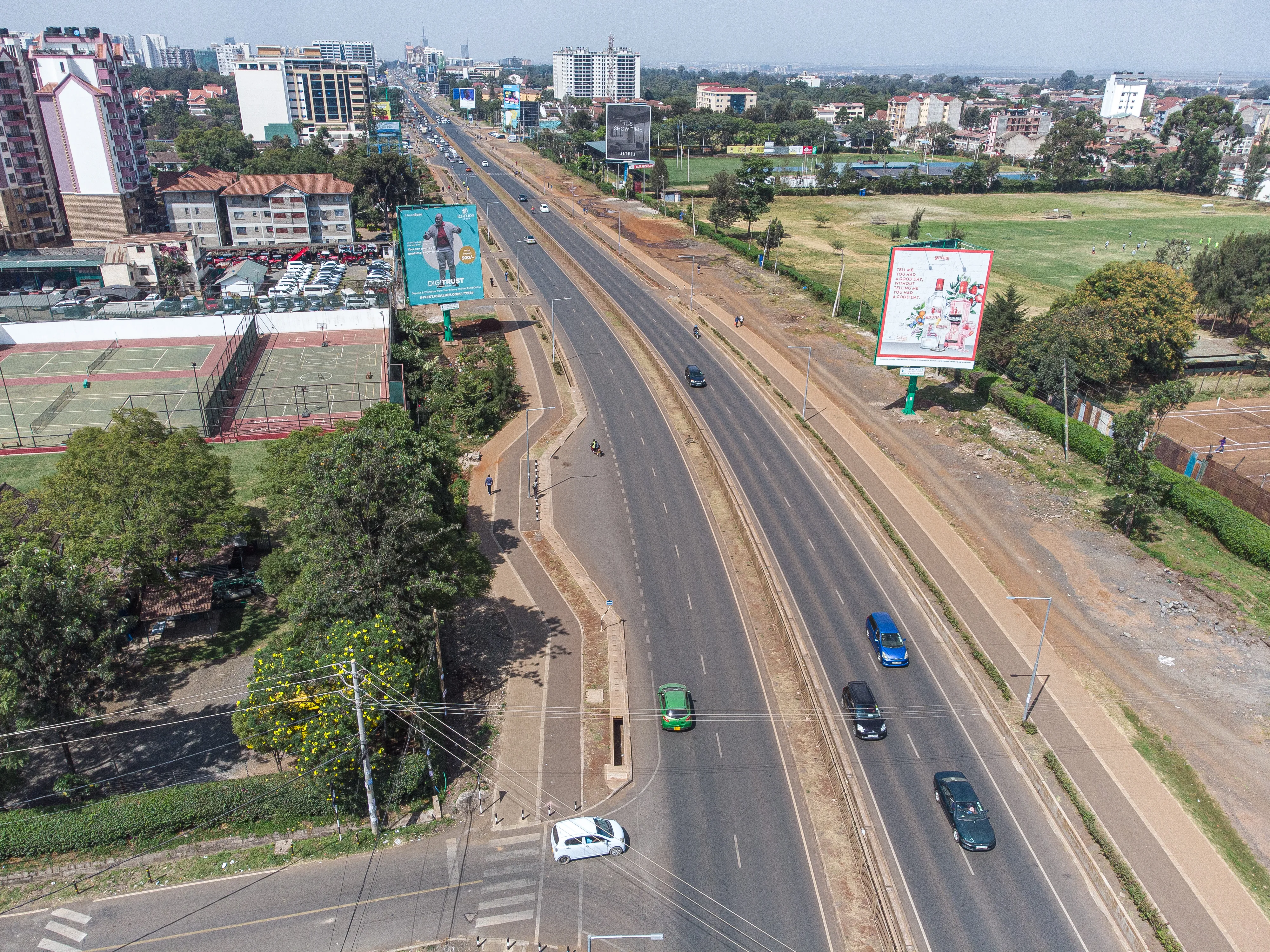The contract for the construction of the Nairobi-Mombasa Highway, a roadway that could boost national and regional economic growth, has been awarded to the Korean Overseas Infrastructure and Urban Development Corporation (KIND).
KIND has presented a feasibility analysis to the Kenyan government that estimates that the highway will cost upwards of $3bn to complete and take roughly three years. Advocates say the highway will cut travel times from the eight to around five hours, improve transit safety, and provide employment during and after construction.
The project has long been in gestation. In August 2017, US company Bechtel signed a memorandum of agreement with Kenya to build the road between the country’s capital and its main seaport.
However, the US company pulled out of the deal after disagreements arose over how the project was to be financed. Given that Kenya is classified by the IMF as being at high risk of debt distress, the East African country preferred turning to non-debt measures such as KIND’s public-private partnerships model to finance infrastructure projects.
Kenya wanted a “build, operate, and transfer” arrangement that would see Bechtel build the 525km highway with its own money and charge toll fees to recover the investment. The US firm declined that offer, saying that the public-private partnership (PPP) model Kenya was requesting would significantly increase the cost of the project by involving expensive borrowing and interest payments.
Bechtel said that the PPP business model would cost five times more at $15bn and would take much more time to complete. Consequently, the two sides failed to reach an agreement and Bechtel pulled out of the project.
Into this space entered KIND, which intends to charge toll fees to recover its investment.
In July, KIND opened its fourth overseas office in Nairobi, its first in Africa. The Nairobi office will act as a facilitator, coordinator and investor for PPP projects in Kenya including the Nairobi-Mombasa Highway.
Highway complements new railway
The proposed road starts at Gitaru along the Nairobi–Nakuru Highway, about 24km northeast of Nairobi’s Central Business District. It continues in a southeasterly direction cutting across Ngong, Ongata Rongai, Kisaju, and Isinya. It rejoins the existing Nairobi–Mombasa Road just north of the proposed Konza City passing through nine counties to end in the city of Mombasa at the Changamwe Roundabout and will have, in total, 19 interchanges.
It has been calculated that the old Nairobi-Mombasa Highway carried 90% of Kenya’s imports.
This Nairobi-Mombasa Highway project will complement the controversial Nairobi-Mombasa Standard Gauge Railway (SGR), built with Chinese backing.
Critics argued that the debt accrued by the SGR is unsustainable. Even before Kenya’s Treasury signed a memorandum of understanding (MoU) with China’s Exim Bank in July 2013, opinion was divided among consultants, policymakers, and civil society activists on the economic viability of a standard gauge railway as opposed to the upgrade of the existing rail link that was built about a century ago by the British colonial authorities.
All three loans for the SGR were procured from China Exim Bank and denominated in US dollars. In total, Kenya borrowed more than $5bn for the construction of the two phases of the SGR (Mombasa-Nairobi and the yet to be completed Nairobi-Naivasha section). A further section was abandoned
The Mombasa-Nairobi railway has yet to report an operating profit when interest payments are taken into account, even though the number of passengers on the SGR more than doubled in 2021 and extra coaches were added to the service. Opinion is divided on what impact a new Nairobi-Mombasa Highway will have on the SGR’s commercial viability.
Election result allows project to proceed
The peaceful electoral victory of incoming President William Ruto, ratified by Kenya’s Supreme Court after a failed challenge by opponent Raila Odinga, is likely to be a further boost to the cross-party support that already existed for the Nairobi-Mombasa Highway.
The Nairobi-Mombasa Highway is not the only road traffic project to be undertaken by a Korean enterprise. A Korean consortium led by Cheil Engineering has won a consultancy contract for the implementation of phase one of the Nairobi Intelligent Transport System project, which seeks to ease the perennial traffic congestion in the Kenyan capital.
According to the Kenya Urban Roads Authority (Kura), the firm will guide execution of the first phase of the Nairobi ITS & Junction Improvement project at a cost of $4.6m. Bechtel has also reiterated its willingness to assist in the construction of the Nairobi-Mombasa Highway. The US corporation recently built the 27km elevated Nairobi expressway, opened last month by former President Uhuru Kenyatta.
- For unrivalled insights into African affairs, from an African perspective, subscribe to African Business.
Want to continue reading? Subscribe today.
You've read all your free articles for this month! Subscribe now to enjoy full access to our content.
Digital Monthly
£8.00 / month
Receive full unlimited access to our articles, opinions, podcasts and more.
Digital Yearly
£70.00 / year
Our best value offer - save £26 and gain access to all of our digital content for an entire year!
 Sign in with Google
Sign in with Google 



